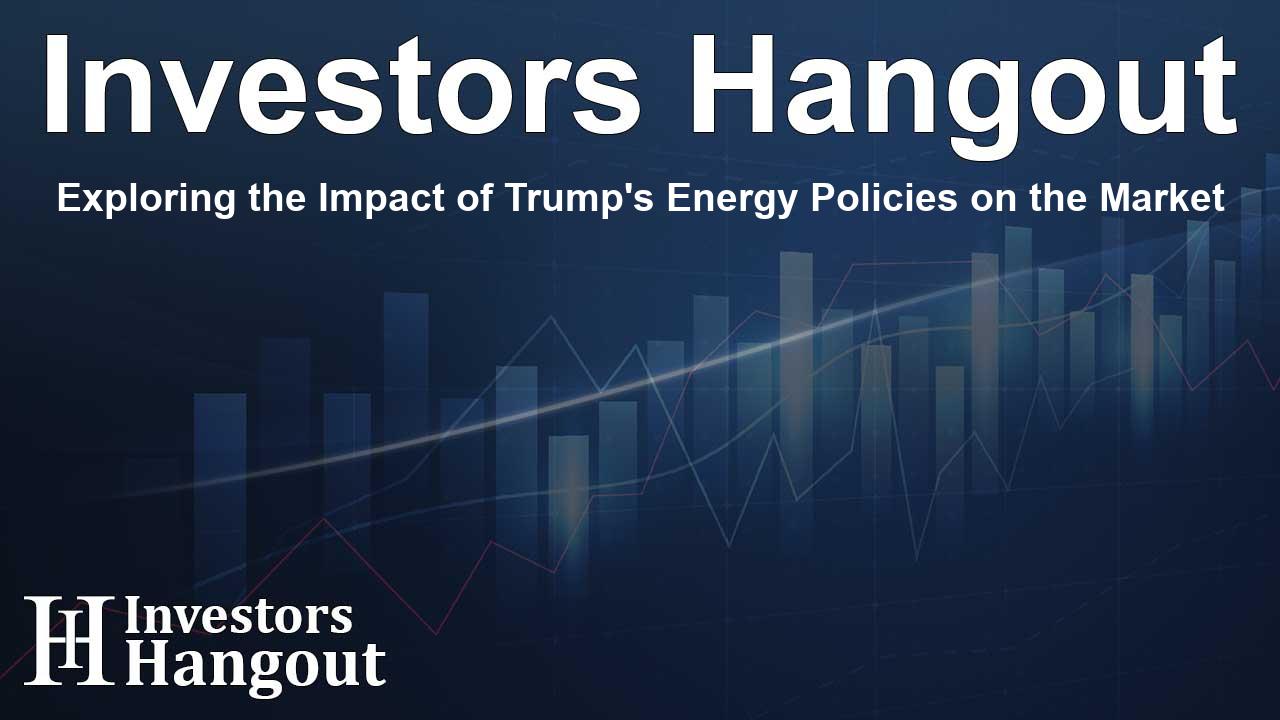Exploring the Impact of Trump's Energy Policies on the Market

Overview of Trump's Energy Doctrine
The energy doctrine put forth during Trump's administration has a far-reaching impact, influencing oil prices and mitigating political risks. President Trump advocates for increasing the operational capacity of power plants in the U.S. by approximately 10-15%, aiming to meet the escalating energy demands, particularly for advancements in artificial intelligence. This proactive stance has caused a shift in perspective even among critics, who now acknowledge the potential historic benefits for U.S. manufacturing and the broader economy, particularly in terms of inflation reduction through decreased government inefficiencies.
International Engagement and Energy Politics
Trump's foreign policy also reflects a decisive approach towards international conflicts, particularly the ongoing situation in Ukraine. His administration has sought to accelerate negotiations aimed at resolving tensions between Russia and Ukraine, with the possibility of securing rare minerals or oil in exchange for continued U.S. support. This situation highlights a significant diplomatic shift, especially considering recent statements from Ukrainian leadership indicating a willingness to negotiate for peace.
The European Response
The dynamics of European energy security are also evolving due to Trump's energy doctrine. Countries like Germany are diversifying their energy imports to reduce reliance on Russian resources, which presents opportunities for U.S. energy exports. As NATO plans the development of new energy infrastructure, notably pipelines, to ensure military readiness, the U.S. is poised to be a key player in supplying oil and liquefied natural gas (LNG) to the region.
Energy Prices and Market Trends
Market developments reflect the shifting landscape influenced by Trump's policies. Recent fluctuations in oil prices, partly attributed to speculation about emerging COVID strains, have provoked discussions about the market's recovery trajectory. Analysts suggest a phase of range trading as prices attempt to stabilize and create a base after a dip.
Natural Gas Market Analysis
The natural gas market, too, is experiencing volatility. With a notable drop in inventories reported by Celsius Energy, the market is navigating through significant supply challenges. Current inventories are well below historical averages, which adds pressure to the market dynamics. EBW Analytics noted substantial spikes in natural gas contract prices, driven by extreme winter conditions and demand surges, indicating a tighter market ahead.
Future Projections and Market Sentiment
Weather patterns are pivotal in shaping the energy market outlook. As forecasters predict a shift toward milder conditions, traders are speculating whether this warmth will be sustained enough to reverse the downward pressures on natural gas prices. The considerable temperature drops witnessed recently have drawn attention to the intense winter, leading to unique phenomena of snowfall in atypical regions.
Conclusion
Ultimately, the intersection of Trump's energy policies with international relations and market conditions paints a complex picture for energy markets moving forward. The strategic decisions made today about energy capacity, diplomatic negotiations, and market fluctuations will undoubtedly have long-term implications for the U.S. economy and its global standing in energy production.
Frequently Asked Questions
What is Trump's current energy doctrine?
Trump's energy doctrine focuses on increasing the operational capacity of U.S. power plants to meet growing energy demands and advancing American energy independence.
How does international politics affect U.S. energy markets?
International tensions, particularly between Russia and Ukraine, directly influence U.S. energy strategy, impacting oil prices and supply chains globally.
What is the significance of Germany's energy diversification?
Germany's move to diversify energy sources reduces reliance on Russia, benefiting U.S. energy exports and enhancing transatlantic security collaboration.
How are current weather patterns impacting natural gas prices?
Recent colder temperatures have driven higher demand and prices for natural gas, while forecasts for warmer conditions may stabilize the market moving forward.
What trends can we expect in U.S. energy exports?
With ongoing geopolitical tensions and domestic policy shifts, U.S. energy exports are projected to increase, especially in oil and LNG, as global demand diversifies.
About The Author
Contact Owen Jenkins privately here. Or send an email with ATTN: Owen Jenkins as the subject to contact@investorshangout.com.
About Investors Hangout
Investors Hangout is a leading online stock forum for financial discussion and learning, offering a wide range of free tools and resources. It draws in traders of all levels, who exchange market knowledge, investigate trading tactics, and keep an eye on industry developments in real time. Featuring financial articles, stock message boards, quotes, charts, company profiles, and live news updates. Through cooperative learning and a wealth of informational resources, it helps users from novices creating their first portfolios to experts honing their techniques. Join Investors Hangout today: https://investorshangout.com/
The content of this article is based on factual, publicly available information and does not represent legal, financial, or investment advice. Investors Hangout does not offer financial advice, and the author is not a licensed financial advisor. Consult a qualified advisor before making any financial or investment decisions based on this article. This article should not be considered advice to purchase, sell, or hold any securities or other investments. If any of the material provided here is inaccurate, please contact us for corrections.
